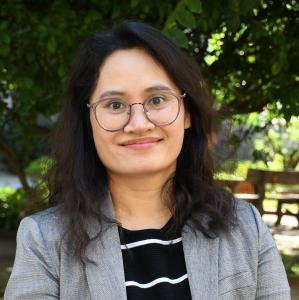The International Sinology Symposium builds upon the annual china talk series hosted by DAV. This year's hybrid event drew participation from over 150 delegates, comprising scholars, experts, leaders, former leaders, and representatives from Vietnamese agencies, alongside diplomatic representatives in Vietnam. Notably, the Symposium attracted a distinguished assembly of globally renowned experts and scholars specializing in China, many of whom are affiliated with esteemed universities and research institutes in China.
At the opening session, Dr. Pham Lan Dung, Acting President of the Diplomatic Academy of Vietnam, underscored the dynamic and intricate changes our world faces. Divergent perceptions on the international system, particularly debates surrounding China's role in global governance, represented focal points. The Symposium served as a pivotal platform for Sinologists to cultivate new connections, exchange insights, and foster a nuanced understanding of China and its increasing influence on global governance.
Assoc. Prof. Ta Minh Tuan, Vice President of the Vietnam Academy of Social Sciences, emphasized China's transition from participating in global governance to assuming a coordinating and leadership role. Acknowledging China's achievements and influence, he also highlighted the challenges inherent in this transformative process. The Symposium successfully drew attention to China's evolving role in global governance, its methods of participation and coordination, developmental trends, and prospective contributions in the upcoming years, garnering widespread interest from experts and scholars worldwide.
Mr. Florian Feyerabend, Resident Representative of the Konrad Adenauer Stiftung (KAS) in Vietnam, noted the ongoing changes in China and the consequent shift in the global perspective towards the nation. This event provided a valuable opportunity to foster a comprehensive global understanding of China while promoting China's own perception of its global standing.
Featuring 19 key presentations across four sessions and a keynote session, the Symposium facilitated interdisciplinary exchanges in Sinology, enriching the knowledge of all participants.
Session 1 focusing on China’s Perspective on Global Governance, scholars concurred that China's vision of global governance is deeply rooted in its tradition, history, culture, values, ideology, economics, and politics. Traditional values, in particular, were highlighted as instrumental in shaping China's foreign policy mindset and national interests in global governance.
Session 2 with topic of Strategies to Enhance China’s Participation in Global Governance, in-depth analyses of China's engagement in international economic institutions were presented. Discussions also delved into China's Overseas Development Finance in Southeast Asia, non-traditional security cooperation with the Global South, green and sustainable development in the Mekong sub-region, and China's technological advancements and their implications for global cyber governance.
The Keynote Session welcomed Prof. Cheng Li, Founding Director, Center on Governance of China and the World, University of Hong Kong. He provided profound insights into China's major-power diplomacy, shedding light on its theoretical foundations and practical applications. It would help understand China’s perspective, policy priorities and policy implementation regarding global governance.
Session 3 focusing on “China’s opportunities and challenges in the existing global governance”, panelists and participants discussed cooperation in global governance within a fragmented world, addressing both opportunities and challenges for China in transnational security in its neighborhood. The potential areas of cooperation between China and major powers, as well as China's role in peacekeeping through mediation and crisis management, were also explored.
With the topic “China's prospects in global governance”, Session 4 explored China's position in a new world with new rules, examining the impact of China's global initiatives on global governance. Discussions also covered China's promotion of South-South cooperation within emerging global organizations and groups, along with China's soft power and its transformative role in global governance.
The Second International Sinology Symposium – The Role of China in Global Governance concluded successfully, receiving positive acclaim and contributing significantly to the expansion of the Sinologists network in Vietnam and beyond.



